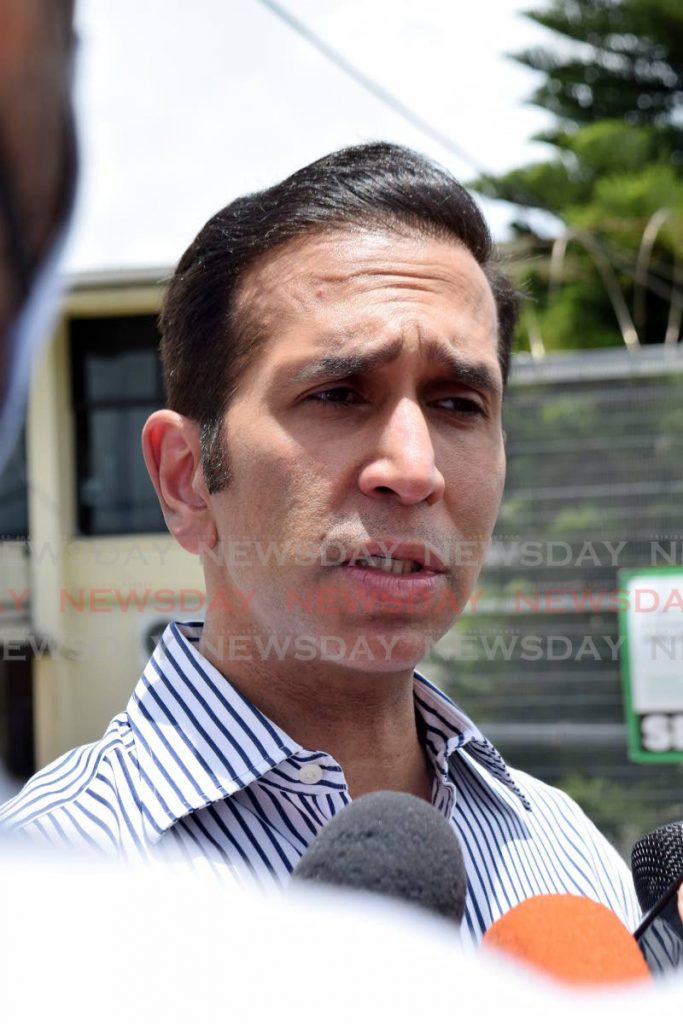Law Association reviews Evidence (Amendment) Act

THE LAW Association (LATT) has commented on proposed additions to the Evidence Act.
On Thursday, the association’s secretary Shankar Bidaisee wrote to Attorney General Faris Al-Rawi and provided the LATT’s legislative review committee’s comments on Evidence (Amendment) Bill, 2020.
The bill was introduced in the Senate on December 8, and seeks to amend the Evidence Act to provide for the use of different identification procedures, interviews and oral admissions, and special measures for evidence by video-link.
The comments were also sent to the Opposition and all senators.
The association also invited members to comment on the latest practice directions issued by the Chief Justice which puts a ban on in-person hearings and for matters to be heard electronically.
To its members, the association said it noted the concerns regarding the challenges posed by virtual hearings, including those concerning the trial process.
Bidaisee told attorneys their views will allow the association to have a clearer understanding of their difficulties so that representation can be made to the Judiciary. The secretary asked members to provide their views by December 24 and provided them with short surveys for virtual trials and non-trial hearings. The surveys covers audio and video quality, asks for recommendations, drawbacks to the process and asks lawyers if they have seen increased productivity with the use of virtual hearings.
On virtual trials, attorneys are asked their preference between a virtual trial or an in-person hearing at a much later date; audio and visual quality; issues relating to the integrity of questioning a witnesses; if they can see the judge’s reactions to the evidence or arguments as they unfold; as well as solicits their views on trials at various courts and drawbacks to virtual trials.
The association previously wrote to Director of Public Prosecutions Roger Gaspard, SC, for his views on virtual hearings.
In its views on the Evidence (Amendment) Bill, 2020, the LATT said it supported the recording of interviews but sounded a note of caution that the entire reform of the investigative process “will come to naught” if proper and sufficient resources are not allocated to provide the necessary recording devices and adequate training and facilitates for the storage of records are not provided to the police.
“The mere fact of recording will go a long way towards reducing, if not eliminating, incidents of forced confessions and disputes at trial about the fairness of the process leading to a confession,” it said in one of its comments.
It also offered suggestions on procedures for the recording of interviews of suspects and witnesses, and the storage of recordings, pointing out that it was a fact that trials take extremely long to start, more than ten years in some cases, so recordings should be kept electronically indefinitely.
As it related to the provision for recordings, audio or visual, to be admissible and deemed to have the same effect as if the evidence was given directly, the LATT warned that it was not clear under what circumstances the statement or testimony may be recorded and used later on.
“Most importantly, however, the carte-blanche admissibility of such video evidence is contrary to all current procedures and practice and violates the principles of fundamental justice, jeopardises the fairness of the trial and cannot be justifiable where the witness is available to give viva voce evidence,” it warned. It has asked for a review of the section provide more precise circumstances where video evidence is admissible.
It also offered its own suggestions on the proposals for the conduct of identification procedures, offering safeguards for a fair process, which also included the recommendation that skin colour be made a feature of the legislation, and what sub-sections should be removed altogether.


Comments
"Law Association reviews Evidence (Amendment) Act"